INTERVIEW: Reaper Games CEO Joseph Rubin Explains Why Legends Of Aria's Future Is Blockchain
Not everyone is excited about NFTs and blockchain being built into the MMORPG, but Rubin would like you to "keep an open mind" and see what the team has in store.
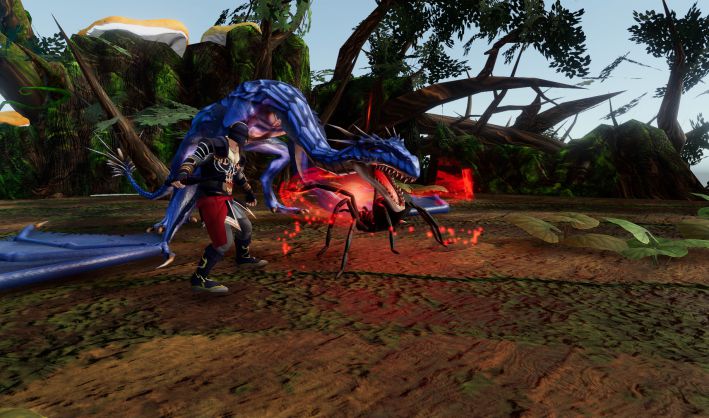
Last month we told you all about the new plans for Legends of Aria and the MMORPG's NFT/Blockchain future. After being purchased, Citadel Studios was going in a whole new direction and released the trailer below to announce the plans. They were met with, well, let's say mixed results across the board. Fans of the game were happy the Ultima Onine inspired title wasn't going to just disappear, but many were concerned about the NFT future.
We were less than complimentary when we gave our individual opinions on a recent episode of our Always Online Podcast.
Following that episode, the CEO of Reaper Games Joseph Rubin reached out to us and offered to talk about the future of the game. We sent over some questions and Joseph was kind enough to provide us with the answers.
While you may be one of the fans that isn't all that keen on the game's future direction, we hope you'll get a bit of insight on why the team feels this is the best direction from our interview.
MMOBomb (MB): Before we get started, can you introduce yourself and tell us a bit about what you do day-to-day on Legends of Aria?
Joseph Rubin (JR): Sure, my name is Joseph Rubin. I’ve got a background in entrepreneurship and have been working on crypto-gaming projects for the past year. I’m currently leading the Legends of Aria blockchain project and, day-to-day, am focused on raising funds, securing strategic partnerships, and improving the game to get it ready for our relaunch as a play-to-earn NFT game.
MB: Let’s start at the beginning when it comes to Legends of Aria, formerly Shards Online. To keep their history brief: they started as Shards Online (a private server, Ultima Online inspired experience), then shifted to a full MMORPG formula when they rebranded as Legends of Aria. They made a free-to-play conversion in 2019 (along with some other changes) and along that entire path, based on backer feedback, burned more than a few of their original Kickstarter backers. What makes a game with a history like that and a documented smaller player base something that your company, Reaper Games, wants to purchase when you purchased Citadel Studios in late 2021? Was this more a tech grab for the Shards Engine or was there very real interest in the game itself?
JR: There are a lot of reasons that I wanted to join forces with LoA and get this game on the blockchain. One is that I was a huge fan of Ultima Online, which is how I first game across LoA, as I was searching for more modern UO-styled MMOs. Games like UO and LoA are true virtual worlds with simulated player economies, making them the perfect platforms for play-to-earn gaming. These games also have high levels of risk vs reward for those who engage in it, which makes for very memorable gaming experiences. Another reason that I wanted to partner with LoA is that I did see immense potential in the game and the underlying technology. There is no crypto-game on the market with the level of depth and intricacy of LoA.
All the blockchain games at this stage are very simple, mostly 2D turn-based games. In addition, there is no true play-to-earn MMORPG out there, so LoA has the potential to be the first MMO to be fully released on the blockchain. I get that in your eyes LoA can’t compare to some of the top-tier MMOs, but the team has always been working with a shoe-string budget and I think they’ve got a game with great bones and potential here that has yet to properly be tapped. Given the funding that a P2E can generate, I believe we can take LoA to the next level.
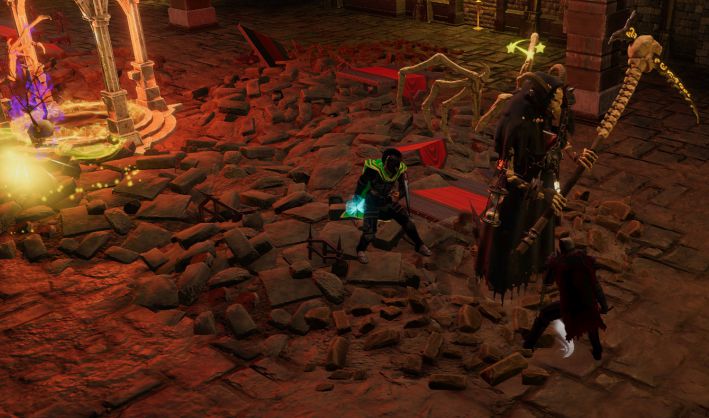
MB: You’ve spoken before about Legends of Aria becoming the first existing MMORPG to implement blockchain and NFT technology. Why is that a big deal to you?
JR: Well, in business, I think there’s a lot of benefits to being the first player in an industry. The first-mover advantage will allow us to monopolize the userbase for a period of time and help us establish stronger brand recognition. There is huge demand in the play-to-earn gaming space for better content on the market and a game like LoA. I’m not sure if you’re familiar with the most popular play-to-earn game, Axie Infinity, but that game and the company behind it was recently valued at 3 billion dollars. And, comparing the gameplay of Axie side-by-side with Legends of Aria will show you that LoA really goes above and beyond most of the industry’s biggest players.
MB: Initial reports in December of 2021 had Blue Monster Studios purchasing Citadel. At the time, you were involved with Blue Monster and a company they owned (Wild Thunder Game Studio) that was working on another NFT MMORPG, Realms of Ethernity. Fast forward to today, and things are a bit different. Can you elaborate a bit on the proposed purchase and what happened back then? Are these two games related at all at this point?
JR: While working at Blue Monster Games (BMG), we were exploring an acquisition of Legends of Aria and did a lot of press releases around the potential deal, but some of those releases were misconstrued. The acquisition between BMG and LoA didn’t go through, for various reasons, but I stayed in touch with Derek (the creator of LoA) and we decided to partner together, forming a new joint-venture called Reaper Games. So, to clarify, BMG and Realms of Ethernity are not related to LoA at this point, and Legends of Aria will be getting our full attention.
MB: On a recent podcast of ours we reviewed recent statements from the Legends of Aria team, and I didn’t disagree with the assertion that many gamers want to be able to buy and sell goods in game (sometimes even for real world money) and many have done it before even if it wasn’t supported by the game’s developer. Can’t this be done already though? We’ve seen it done in various ways with varying degrees of success for many years now. Diablo 3’s real money auction house is a more recent example.
JR: It can be done, but the blockchain adds another layer of security and the NFT technology allows the user to have true ownership over the assets. A centralized real-money auction house is less secure, and still could have issues with fraud, hacking, and duping bugs. I believe the Diablo 3 auction house had a duping issue with their gold at one point, causing some hyperinflation. When the software behind the marketplace is protected by smart contracts (as well as properly audited), you don’t have those risks.
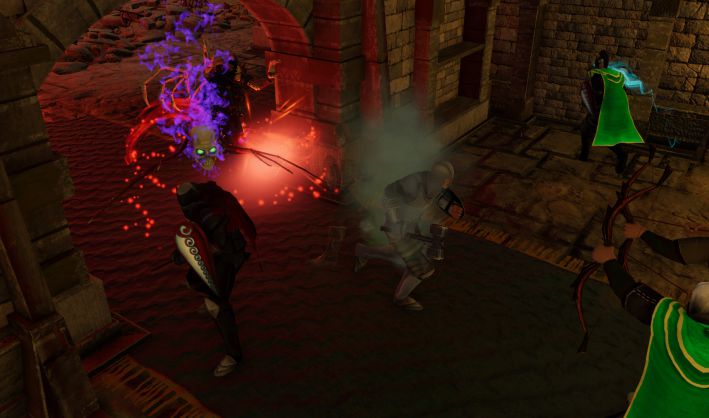
MB: How does using blockchain technology provide more security than simply implementing the ability to sell via a real money auction house? We see stories almost weekly right now of blockchain and NFT products (particularly in gaming) suffering massive thefts/hacks.
JR: A decentralized marketplace powered by smart contracts doesn’t have the same risks associated with it that a centralized marketplace does. I think the breaches need to be looked at one a case-by-case basis, There was one that was very popularized recently involving the game Axie Infinity, where the game ended up losing over $600 million in cryptocurrency. But, the reason this was vulnerable was because they were using their own network that wasn’t really decentralized— I think it had only 9 nodes/validators. In general, a properly decentralized network (alongside proper auditing) has significantly less risk, and is far less vulnerable to attacks than an off-chain real money auction house.
MB: Blockchain aside, isn’t there something inherently “sketchy” about a market run by the same company that controls the rarity of many of the items that can be sold on that market?
JR: I wouldn’t say so. As you’ve noted, there are many games that have done real-money auction houses in the past and I don’t think any have been categorized as “sketchy.” The Legends of Aria Marketplace will offer a great deal more security via smart contracts, accountability from audits, and much more transparency because all transactions are visible and traceable on the blockchain.
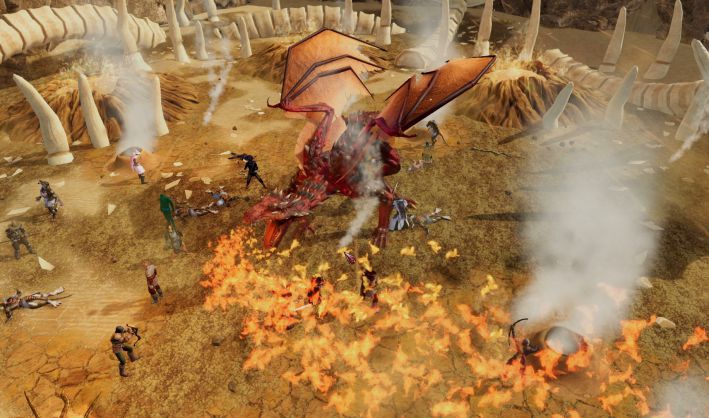
MB: About blockchain and NFT tech in games, while a smaller audience may want games of a “play-to-earn” variety, the gaming audience at large has rejected them for a multitude of reasons. Why do you continue to believe this is the right path to take with new products and with converted products like Legends of Aria?
JR: I think we’re just at the infancy of the play-to-earn market and, as I mentioned earlier, all the play-to-earn games on the market are mostly simple 2D games with a very high barrier of entry— some of these games cost thousands of dollars just to access them. If we have more fun games on the market, the type that the masses would typically play, then you’ll see more adoption. In games like Fortnite you have kids spending hundreds of dollars on these skins to change their characters appearance. But, if they stop playing, they have nothing to show from it. Converting those skins into NFTs and providing a marketplace for them would allow them to have true ownership of the assets and enable them to cash out if they wanted. I don’t think the ability to monetize your time in a game is something that gamers in general are averse to, but they often have no mechanism to do so.
When I played World of Warcraft, I tried to sell my character that I had put a lot of time and effort into. Some of these characters were selling for thousands of dollars. But, due to my email changing, my account got flagged and I ended up with a ban and no access to my character. I don’t think I’m the only one who’s interested in the ability to cash out from a game (or “play-to-earn”), as you can still see WoW characters online trading on third-party sites to this day.
MB: What is your response to the negative impact that these technologies currently have on the environment?
JR: I think it's something that the industry is putting a lot of thought and consideration into. There have been many blockchain networks popping up in the past few years that are much less taxing to the environment than Bitcoin. I think these greener chains are the future and will have a negligible effect on the environment. That being said, to negate any environmental damage caused by these technologies, we could also make sure that we get our electricity from cleaner sources like renewable energies.
MB: Do your “relaunch” development plans for Legends of Aria depend on new investments either from private firms or individual players/backers or is the game fully funded to at least reach its “relaunch” already?
JR: The LoA blockchain project is in the process of securing funding from private firms and will be doing a public sale of our cryptocurrency towards the end of the summer. We aren’t depending on funding from players/backers, but some players of LoA have already expressed interest in our cryptocurrency; however, those are typically the ones that are already in the crypto-space and who, like me, see the potential upside of the tokens comparing it to other projects in the space.
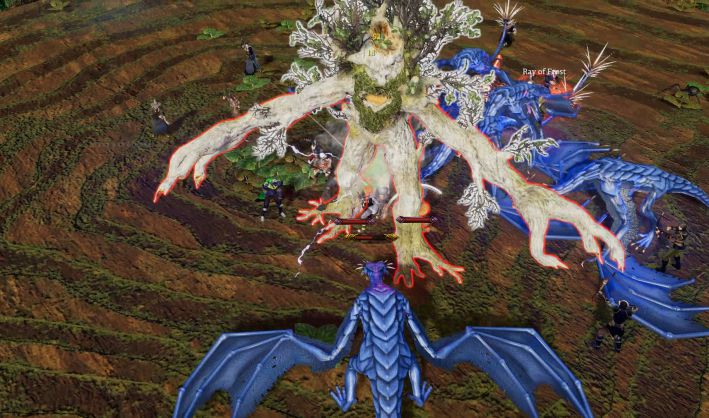
MB: Why are the Legends of Aria “classic” servers being kept up if the player base is as low as it shows on some platforms like Steam?
JR: People have put a lot of time into these legacy servers, so we would like to keep the service open if they enjoy that version more than the newer client we’re developing. If the population truly goes to zero, we’d close them down, but as long as there’s still a small population, then we’ll likely keep them open.
MB: Is there concern about potential “OG”, as your team puts it, backer backlash over the new direction for Legends of Aria?
JR: At this point, a lot of the community has been responding positively because they’re happy to see continued development and new content on the horizon. There is some uncertainty with the technology, but our focus is to put the game first and make the blockchain features fit in seamlessly.
MB: How do you think the implementation of a very divisive feature like NFT/blockchain helps Legends of Aria, a game that has underperformed thus far to date, turn the ship around and succeed?
JR: Well, I think one of the biggest benefits of this move is the funding. Legends of Aria began with a $100,000 Kickstarter and has always been working with a shoestring budget. I think, given that limitation, it has done quite well for itself compared to many other Kickstarters. But, with our integration of this innovative technology, we are able to onboard strategic partners in the industry to provide an influx of capital that the game has never seen. We'll be able to significantly improve LoA all-around, including graphics and gameplay, and market the game like never before. There is also significant demand in the crypto-gaming space for new titles, and LoA blows most of the games in this space out of the water. So, I think we're setting ourselves up for quite the revival.
MB: What is the biggest misconception you think gamers have about blockchain and NFTs in gaming?
JR: I think most gamers look at the industry and see these absurd price tags to play these games, and they look at the quality of the games, and it’s dismal, so they just reject it all outright. I’d say most haven’t thought of the possibility of all their favorite titles like GTA or Call of Duty at some point in the future just seamlessly having their assets backed by NFTs in the background. The only difference between those games then and now is that they could sell their assets at some point and cash out if they move on to another game. The NFT-backed assets don’t make the games less fun or change the gameplay in any way.
MB: Final word goes to you! What would you like our audience to take away from a conversation with you about gaming and Legends of Aria in particular?
JR: I would just say to keep an open mind about NFTs in gaming. The goal behind projects like ours isn’t to take more money from you, it’s to allow you to just play a game and be able to freely monetize your time spent inside. In addition, I’d encourage you to check out the open Beta of the latest Legends of Aria build that we’ll be hosting in July. It will be free to access, and we’ll be having a big PvP tournament with cash rewards towards the end of the month.
We'd like to thank Joseph Rubin for spending some time with us to talk about the future of Legends of Aria.
Let us know if what Joseph had to say assuages your concerns or not in the comments!
Related Articles
About the Author

Mike “Magicman” Byrne has been a part of the MMOBomb family for years and serves as the site’s current Editor-in-Chief. His love for MMOs and gaming in general has led him to covering games for numerous gaming websites including Gamebreaker TV and XIV Nation where he proudly displays his fanboy flag for FFXIV:ARR.
More Stories by Michael ByrneRead Next

She is a mysterious person who claims to work for the Ministry of Civil Affairs, but what is her real secret?
You May Enjoy

With the alpha test making its debut, these pirates are looking to make a name for themselves.

Who’s ready to become Aha?

The new episode introduces a newly-awakened Descendant with secrets to uncover.
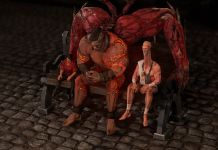
It’s also a good time to get the Legacy of Phrecia cosmetic bundles if you missed them before.
Discussion (2)